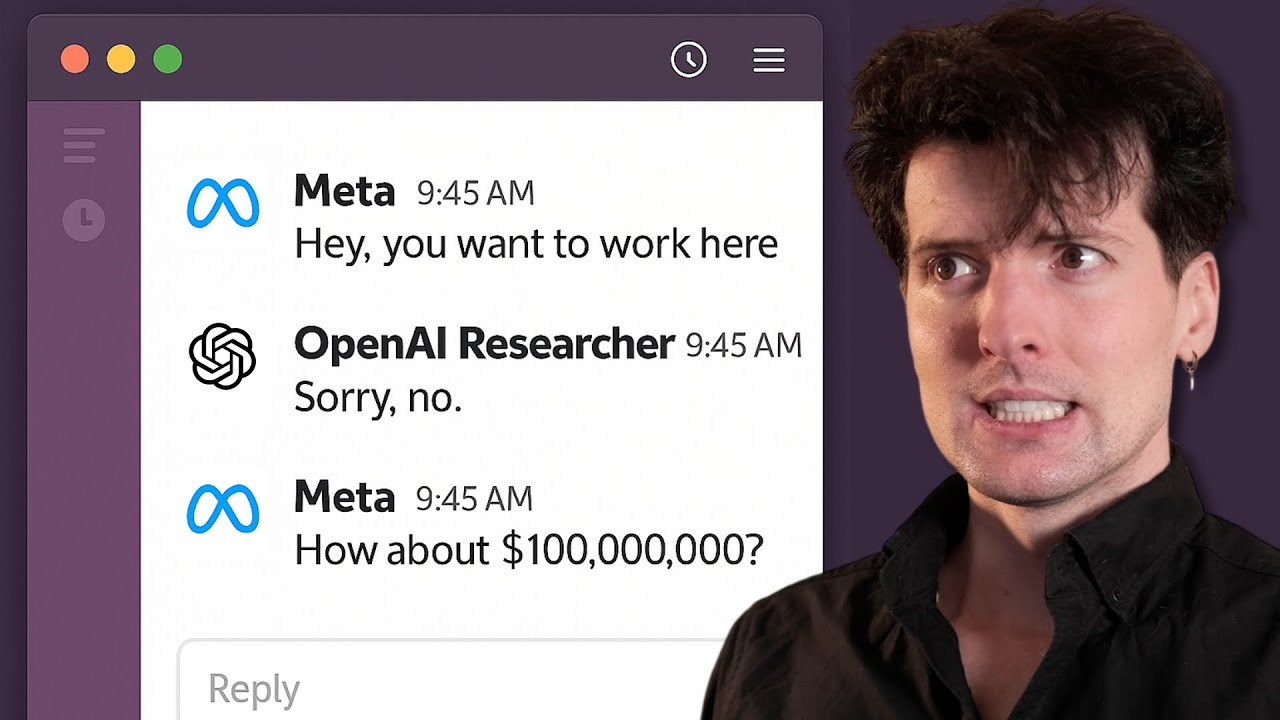The video analyzes Meta’s strategic shift from open AI platforms to developing highly personalized AI that integrates deeply with users’ digital lives, leveraging its vast user data to create “personal super intelligence” focused on empowering creativity rather than automating work. Despite current challenges and competition, Meta’s unique advantage lies in its massive user base and rich personal data, positioning it to compete effectively in the evolving AI landscape alongside rivals like Apple.
The video discusses Meta’s evolving strategy in the rapidly intensifying AI race, highlighting their aggressive recruitment efforts to build a powerful AI research team. Despite initial excitement around Meta’s open-source Llama models, these have fallen behind competitors like Deepseek and OpenAI in performance and capabilities. Mark Zuckerberg’s recent blog post and video emphasize Meta’s vision of developing “personal super intelligence”—AI that empowers individuals to achieve personal goals and enhance creativity, rather than focusing solely on automating work. This vision contrasts with other industry players who prioritize AI-driven automation of valuable labor.
The presenter critiques Zuckerberg’s video for its teleprompter delivery and robotic feel but acknowledges the core message: Meta aims to build AI that deeply integrates with users’ personal lives. The blog post reiterates this, framing AI progress as a continuation of historical productivity trends that free people to focus more on creativity and relationships. Meta’s unique advantage lies in its vast user base—billions of people already using Facebook, Instagram, WhatsApp, and other platforms—providing rich personal data that can fuel highly personalized AI experiences, a competitive edge over rivals like Apple, which lacks comparable data.
A significant portion of the video is devoted to analyzing Meta’s strategic shift from an open versus closed platform battle to a personal versus work-oriented AI focus. Historically, Meta championed open platforms, similar to Microsoft’s Windows strategy, to attract developers and users. However, the open AI model space has become crowded and competitive, with Chinese labs and others surpassing Meta’s Llama models. Meanwhile, the distinction between open and closed platforms has blurred in consumer markets due to app stores, making personalization and user experience the new battleground.
Meta’s pivot toward personal AI leverages its deep integration with users’ digital lives, aiming to create AI that knows individuals intimately and can assist in highly personalized ways. This contrasts with models like GPT-4, which are strong in conversational AI but less integrated with personal data. The presenter argues that Meta’s strength is in this personalized AI space, where it can outcompete others by using its vast data and infrastructure to deliver tailored experiences, especially as AI increasingly automates work and frees up more personal time for users.
Finally, the video reflects on the broader implications of AI-driven automation potentially displacing many jobs, raising questions about how people will spend their time and what tools they will use. Meta’s bet is that as work becomes automated, AI focused on personal empowerment and creativity will dominate. While the presenter is skeptical about Meta’s financial prospects and notes that Llama currently lacks traction, he acknowledges that Meta’s unique position with billions of users and rich personal data could make it a formidable player in the next phase of AI development, competing mainly with Apple, which lacks similar data assets.
